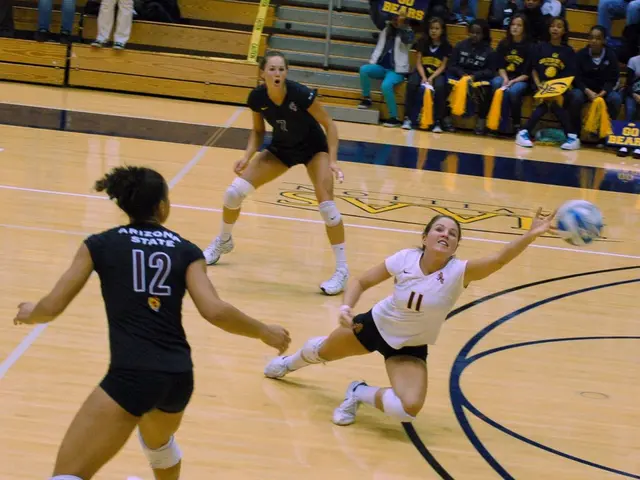Political Landscape: Which Candidates, Machado/González or Maduro, Gain Popular Support in Elections?
In this newly presented analysis, readers are provided a fresh look at the electoral results throughout the Chavismo period, 1998-2024. This information comes together in the table, "Venezuela: All National Electoral Results, 1998-2024." It covers Presidential, Constituent, National Assembly voting, and various referendums. This compilation aims to help everyone weigh the debate surrounding the contentious July 2024 presidential election.
It's essential to compare apples to apples; thus, this analysis disregards local, regional, and municipal elections. Our focus lies on the controversial July 28, 2024 presidential election, comparing it to similar elections since 1998. Chavismo has come out on top in all but two elections, as highlighted by the table's grey shading. Curiously, even this loss raises cause for doubt regarding the "fraud" claims.
The question of credibility—whether the U.S.-led "fraud" narrative or the Consejo Nacional Electoral (CNE), Venezuela's constitutionally established national electoral council—governs our discussion. But let's play devil's advocate for a moment, pushing aside legal authority concerns, and explore which candidate—Machado/ Gonzalez or Nicola Maduro—enjoys greater electoral backing.
The self-explanatory electoral results in the table's first five entries, except for the 1999 Constitutional Referendum, warrant explanation. One of Chávez's primary campaign promises was a new constitution. Thus, the 1999 Constitutional Referendum consisted of two questions: "Do you convene a National Constituent Assembly with the purpose of transforming the State and creating a new legal system that allows the effective functioning of a social and participatory democracy?" and "Do you authorize the President of the Republic so that after hearing the opinion of the political, social, and economic sectors, the Government Act establishes the bases of an electoral process in which the members of the Constituent Assembly will be elected?" These were overwhelmingly approved.
The 2004 Recall Referendum, instigated by the opposition after obtaining the minimum number of signatures, proposed, "Do you agree to revoke, for the current term, the popular mandate as President of the Bolivarian Republic of Venezuela granted to citizen Hugo Rafael Chávez Friás through democratic and legitimate elections? NO or YES?" The NO vote won, thwarting the opposition's aim to revoke Chávez.
The 2007 Chávez-initiated Constitutional Referendum comprised two blocks of questions related to 69 constitutional amendments, largely concerning the elimination of term limits for presidential elections and policies to benefit working people. It was narrowly defeated. The only other electoral setback for Chavismo was the 2015 National Assembly elections, which gets further scrutiny.
So, what do these voting trends say about the validity of the opposing narratives concerning the July 28 election's results? The opposition asserts they won by a landslide, based on their own Miami-computed results. In contrast, Maduro acknowledges the official electoral results, which show him securing more than 6 million votes. Geographic and political contrasts between Miami and Caracas make this comparison a moot point. Nonetheless, number crunching might reveal some insights.
First, since the opposition accepted the 2007 Constitutional Referendum results, despite losing, Chavista forces conceded the unfavorable results. Nevertheless, they still secured an average of 4.36 million votes in both referendum questions—a result that the opposition initially accepted. This 4.36 million represents a figure that's relatively close to the 6 million votes for Maduro in 2024, weakening the narrative of an overwhelming opposition win.
Second, in the 2015 National Assembly elections, the Bolivarians still garnered 5.62 million votes. This result falls within the same range as the 6 million votes for Maduro in 2024, further discrediting the opposition's exaggerated claims. Although the population remained relatively consistent between both elections, Chavistas experienced a disadvantage due to an uptick in registered voters—from about 19.50 million in 2015 to about 21 million in 2024. Thus, the 5.62 million votes garnered by Maduro's supporters in 2015 remain significant, again contradicting the opposition's claimed mandate.
Lastly, the table shows a decline in popular vote for Maduro, dropping from 68% in the 2018 presidential elections to 52% in the recent July election. Does this indicate that Maduro's popularity is waning, making it impossible for him to have won the 2024 vote? Not necessarily. Contrary to belief, parts of the opposition's call for abstention in the 2018 presidential election may have inadvertently aided Maduro's victory.
Analysts should consider that, during the 2018 presidential election, the main opposition forces urged a boycott. This call was spearheaded by the Mesa de la Unidad Democrática (MUD). As a result, voter turnout plummeted to the lowest percentage on record for a presidential election in Venezuela (i.e., the competition for occupying Miraflores, the head of state offices). However, this lowered turnout ended up benefiting Maduro, who won a record percentage of the actual votes that year.
In conclusion, the presented figures show that Maduro won the July 28, 2024, presidential election. Despite the opposition's claims, the only fraud lies in their persistent posturing. Consequently, President Maduro and the Bolivarian Revolution deserve backing from the global masses and governments, particularly those in Latin America and the Caribbean.
The opinions expressed in this article are the author’s own and do not necessarily represent the views of the Venezuelanalysis editorial staff.
- The electoral analysis, available through Venezuelanalysis, provides an overview of the electoral results throughout the Chavismo period, from 1998 to 2024, focusing on national elections and referendums.
- The table, "Venezuela: All National Electoral Results, 1998-2024," covers Presidential, Constituent, National Assembly voting, and various referendums to help readers understand the puzzle of the contentious July 2024 presidential election.
- In the analysis, local, regional, and municipal elections are excluded from the scrutiny to allow a fair comparison of the electoral results.
- The table shows that Chavismo has been the winner in all but two elections since 1998, with the grey shading indicating these rare defeats.
- In the discussion of the July 28, 2024 presidential election, the question of credibility arises, concerning the controversial "fraud" claims against the CNE and the U.S.-led narrative.
- Comparing the electoral trends in the table reveals that Maduro secured more than 6 million votes, whereas the opposition claims a landslide win based on their Miami-computed results.
- The analysis suggests that Maduro's victory in the July 28, 2024 presidential election is valid, and his continuing leadership deserves backing from the global community, including Latin American and Caribbean governments.








